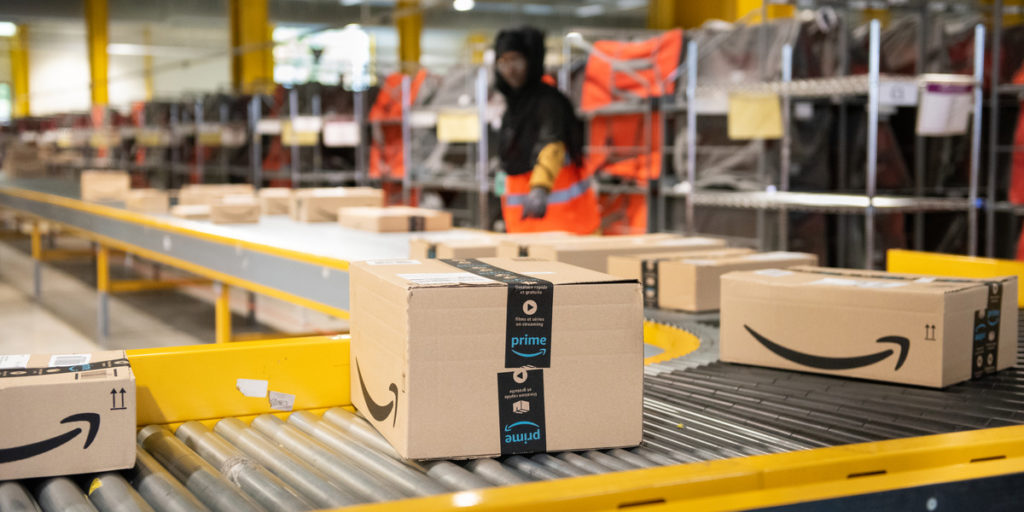Here at Scurri, we like to keep our finger on the pulse of what’s happening in the industry with our regular news roundups, and 2021 certainly hasn’t been short of eCommerce news!
This year, we saw the pandemic officially make its one-year mark on retail. Restrictions finally loosened on bricks and mortar stores, but it didn’t mean that eCommerce could take a breath, as 50% of consumers said that they would buy the same amount of products online as they did in 2020.
We’ve already started to look ahead to 2022 with the trends that we expect to be talking about next year. So as 2021 draws to an end, we’re reflecting on some of the news stories that have had a major impact on eCommerce as we know it.
Suez Canal Blockage = Major Disruption
In March, the Suez Canal was blocked for 6 days, after a 20,000 TEU container ship got lodged in the canal banks, leaving over 100 cargo ships carrying oil, automotive parts, and consumer goods jammed. The economic impact of these 6 days has been felt ever since and had a monumental on the entire retail industry – price hikes, delayed delivery times, stock shortages, you name it. While canal crossing has long since resumed, international shipping is still feeling the effects of the incident, and will likely continue to do so well into 2022.
Black Friday Sales Fell (With Good Reason)
Unsurprisingly, 2021 didn’t surpass the sales figures that we saw in 2020, with revenue dropping by -14.3% overall. Just one in five retailers reported Year on Year growth of over 10%, while the electricals sector saw a -35.7% YoY average revenue drop. This decline is primarily being attributed to the fact that most shoppers were in lockdown during Black Friday/Cyber Monday 2020 and had to shop online, whereas this year with retail restrictions being lifted, in-store shopping resumed to somewhat normal levels. Most interestingly, omnichannel performance was down by 25%, which according to IMRG was likely down to customers making in-store shopping a full experience, choosing items to buy in-store rather than purchasing online and collecting in-store.
Read the full IMRG report here.
‘The Great Resignation’ Hit ECommerce Hard
While the pandemic has catapulted the eCommerce industry ahead by ten years, meaning huge ongoing opportunities for retailers are brands, a bigger challenge has emerged in the wake of Covid-19, dubbed ‘The Great Resignation’, and it’s affecting every major part of retail as we know it. A lack of delivery drivers has been an issue for some time, but Covid 19, and Brexit has further fuelled the fire, with a reported shortage of over 100,000 qualified drivers in the UK alone. Changes in self-employment rules haven’t helped matters, thanks to a 25% increase in agency driver charges. The retail frontlines have also been heavily hit, with over 720,000 workers quitting their jobs in the US in the month of August.
As talent acquisition is going to have to be a major focus in 2022, brands will need to refine their strategies to attract and more importantly retain talent in this new era of retail.

Amazon Announces Dublin Fulfillment Centre
In September, Amazon announced its plans to open its first fulfillment centre in the Republic of Ireland – a 58,530 square meter centre at Baldonnell Business Park. Due to open in spring 2022, the centre is set to create 500 new jobs, and provide one-day delivery for Irish customers on hundreds of thousands of items.
Aiming to be net-zero carbon across its businesses by 2040, Amazon stated that the fulfillment centre will be 100% electric, fitted with solar panels, and energy efficiency will be a top priority.
Read the full press release here.
The Cookie Crumbles for eCommerce Marketers
Google first announced that it would be phasing out the use of third-party cookies from its Chrome browser in January 2020, promising to have it complete by 2022. That date has now been kicked out to 2023, but the company announced this year that they would “continue to support first-party relationships on our ad platforms for partners, in which they have direct connections with their own customers.” The slow death of third-party cookies has started to make way for a new data collection method to rise – zero-party data. The buzz around zero-party data sparked from further tightening of privacy regulations, particularly data tracking on iOS 14.5, and has perked up the ears of retailers who are keen to personalise the eCommerce experience, as additional optional data is given freely by users, as opposed to collected by third party-aggregators.
This shift towards a first-party data strategy has shone the spotlight on how important it is for eCommerce marketing teams to have alternative strategies for collecting data, since privacy requirements are likely to narrow even further in the future…
Scurri Receives €9million in Funding
Finally, we couldn’t talk about eCommerce news in 2021 without mentioning the news that made headlines this June about Scurri raising €9 million investment in the company to further accelerate growth in the UK market, and help retailers and brands to overcome the key delivery challenges they face.
Since then, plans to triple the Scurri workforce in the next two years are well underway, with open vacancies listed across every department of the business, including marketing, people and culture, engineering, sales, and more.
That’s it – another year of eCommerce in the bag (or box, in this case!) Remember to keep an eye on the blog in 2022 for more regular industry updates to keep you in the know on what’s happening in deliveries, eCommerce, and behind the scenes here at Scurri!
Talk to us today to find out how we can help you stay one step ahead in 2022 and beyond.

AUTHOR
Michelle McSweeney Content Marketer
